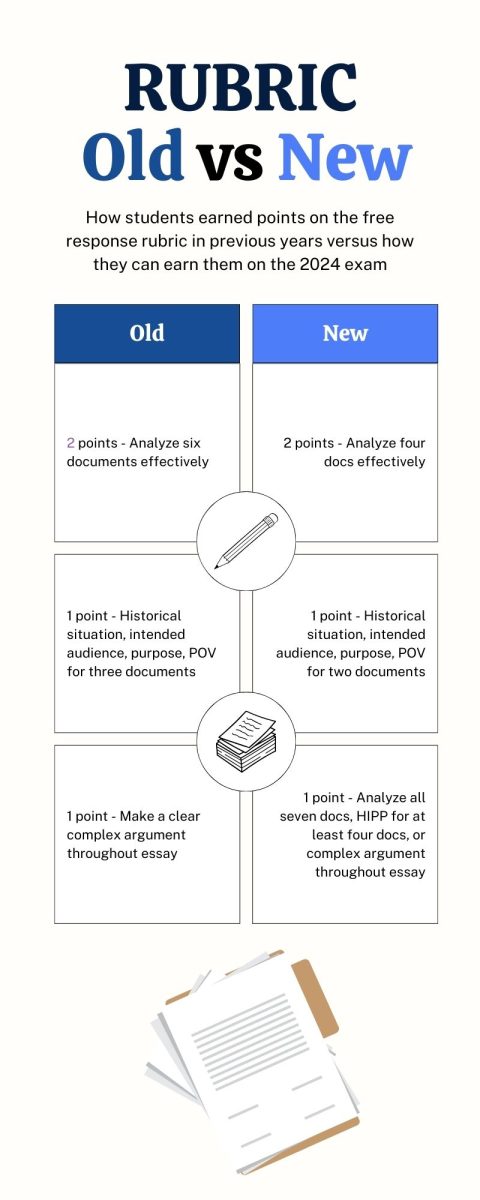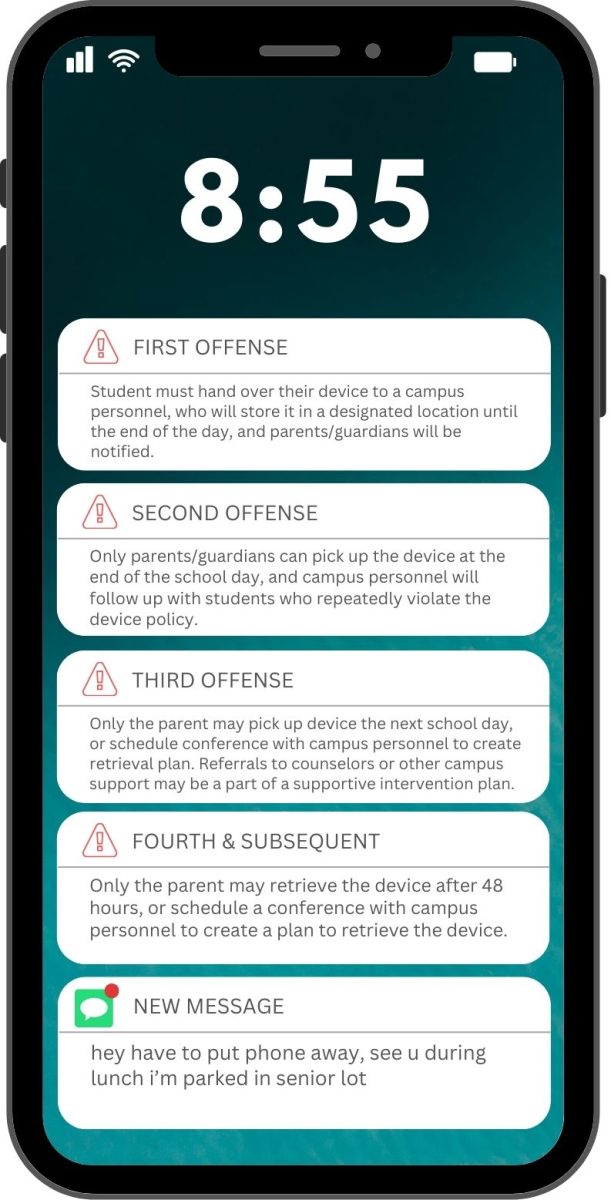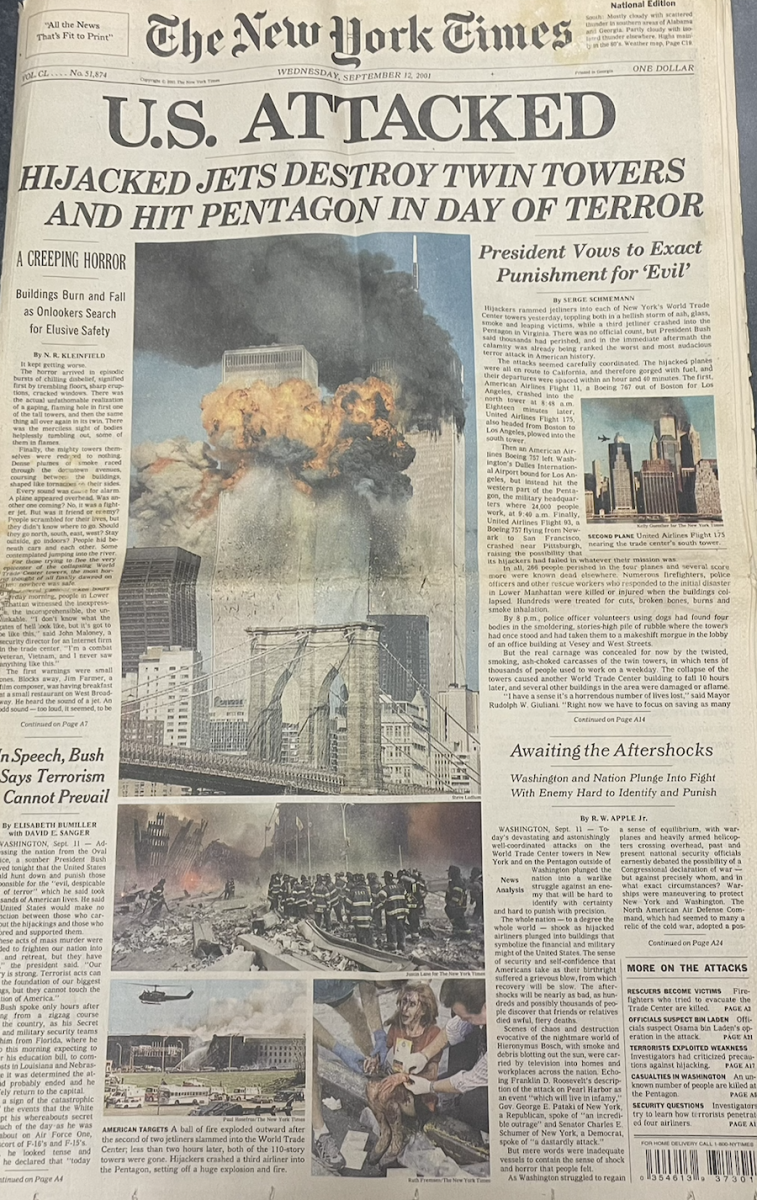
Advanced Placement history classes are preparing for the AP exam ahead of them, but this year, students will have their essays scored on a different rubric. Coming out with a change in rubric for the DBQ section for all AP history exams, College Board has provided more specificity and more ways to earn certain points on the free-response portion of the exam. To earn the full seven points on the Document-Based Question, or DBQ, students previously had to establish a complex argument to earn what’s called the complexity point, but it was not entirely clear to students or their teachers what constituted complexity. As a result, very few students historically have been able to earn this final point. It’s been so elusive in the past that it’s often referred to as “the unicorn point.”
Under the new policy, College Board has revised the rubric to provide more ways for a student to earn the complexity point and a more concrete explanation of what is required. Beginning with the 2024 exam, students can earn the point by using all seven documents effectively in the essay, and they can also earn it by using HIPP analysis (historical situation, intended audience, purpose, point of view) on four of the provided documents. Students can also earn it simply by using the documents and “evidence beyond the documents” to show “a sophisticated understanding of different perspectives relevant to the prompt.” The original way to earn it, “a complex understanding through sophisticated understanding,” is still a part of the rubric and is not changed.
AP World History student and sophomore Sara Hamlet fully supports the changes to the rubric and hopes it can lighten her load in the class.
“I feel like it gives students more of a chance to succeed and show that they have understood the material,” Hamlet said. “I think it will bring
up the confidence of the students who have worked really hard to accomplish [a good score on] this hard test.”
According to AP U.S. History teacher Clifford Stanchos, AP history exams are notorious for being difficult tests. He adds that students may struggle on the exam, even though they know the material covered on it because of how they approach the test.
“What’s typical of a student that’s interested in history, is they lack the willingness to earn the extra points by following rubrics,” Stanchos said. “They’ll know all the material, but struggle by the rubric, but still pass the test.”
Stanchos said he plans to continue to teach based on the old rubric this school year because doing so will prepare students to do well on the less difficult rubric.
“I can keep the higher standard, and more of my kids will do well on the the AP exam come May,” Stanchos said.
Junior Sofia Thatcher is currently in AP U.S. History and knows her way around the DBQ due to her prior experience in AP World History. Thatcher does not support the rubric changes.
“You work really hard in the AP class,” Thatcher said. “Learning how to deal with a lot of different documents and different style questions is important.”
On the other hand, Thatcher understands why the College Board is trying to help current AP students.
“AP tests are really hard for everyone,” Thatcher said. “It’s not like I can go back, so I’m not mad they’re making it easier for the younger kids.”
While it is not unusual for College Board to make changes to its rubrics, some have questioned why College Board implemented the change after the start of the school year. First-year AP World History teacher Maria Priebe understands the changes College Board has made, but like many teachers, she says she has been given little explanation as to why this change has been made a month into the school year.
“That was a question I had when I received this news too,” Priebe said. “Why didn’t they do this over the summer because so many teachers have already started teaching this content? [So] It came as a surprise that they released it like a month into the school year.”
Unlike Stanchos, Priebe plans to adjust her teaching to address the new rubric. “In the past I did say if you’re still worried about being able to analyze all the documents or source them by using point of view, or historical situation, maybe don’t worry as much about the complexity point because I didn’t want to discourage students,” Priebe said. “In reality so few people got it whereas now I find myself definitely encouraging more students to shoot for that [point] because it’s a lot more attainable.”









Henry • Jan 12, 2024 at 2:31 pm
I liked your article I thought it was pretty interesting.
Natalie • Jan 11, 2024 at 7:15 pm
I really liked this story and how you put the old vs new rubric in the story so we can see the changes and what the teachers have to adjust too!